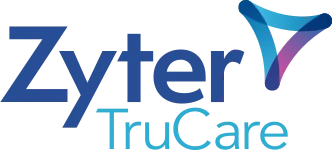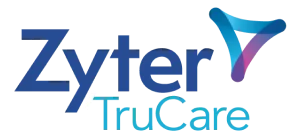The swift and accurate exchange of vital patient information across diverse systems is essential in healthcare. Interoperability enables healthcare IT systems and software applications to communicate effectively, exchange data, and utilize this information to enhance patient outcomes and streamline care coordination. It serves as a cornerstone of modern medical practice, facilitating seamless integration across clinical environments.
At Zyter|TruCare, we recognize interoperability as more than just the exchange of data; it is a dynamic ecosystem that unites disjointed healthcare systems into a coherent, efficient network. Our commitment as an interoperability partner is to empower healthcare providers to make informed clinical decisions, improve patient care, and streamline operations by ensuring that critical health information is accessible when and where it is needed.
The Imperative for Robust Interoperability
Fragmented communication systems within the healthcare industry pose considerable challenges. Research from the Healthcare Information and Management Systems Society (HIMSS) indicates that 80% of serious medical errors are due to miscommunication during patient transfers between care settings. Furthermore, effective interoperability practices lead to significant reductions in healthcare costs and the duplication of diagnostic procedures. According to the Office of the National Coordinator for Health Information Technoloy (ONC), enhanced interoperability has been linked to a 9% decrease in hospital readmission rates, highlighting its crucial role in improving patient care efficiency and effectiveness.
Overcoming Interoperability Challenges
Achieving effective interoperability across healthcare systems is fraught with a range of technological, regulatory, and cultural challenges that can significantly impede the free flow of critical health information including:
- Technological Challenges: According to a report by HIMSS, over 50% of healthcare facilities use legacy systems that complicate data sharing due to compatibility issues with newer technologies. The report also notes that the diversity of software solutions across institutions causes inconsistencies in data formats and protocols, further complicating the interoperability landscape. Addressing these barriers requires robust middleware solutions that act as translators between disparate systems. These middleware solutions are crucial for standardizing data formats and protocols to ensure consistent and effective communication across various healthcare platforms.
- Regulatory Challenges: Stringent privacy laws such as HIPAA in the United States and GDPR in Europe introduce complex compliance requirements that impact data sharing practices. According to a survey by Deloitte, 47% of healthcare organizations cite compliance with these regulations as a significant barrier to data integration. To meet these challenges, healthcare organizations are increasingly implementing advanced encryption, secure data transfer protocols, and rigorous access controls to ensure the secure and efficient flow of information while protecting patient privacy.
- Cultural Challenges: A McKinsey study highlights that resistance to adopting new technologies in healthcare often stems from fears of operational disruption or loss of data control. Additionally, competitive dynamics between providers can deter information sharing, with 39% of healthcare providers hesitant to share information due to competitive concerns. Overcoming these cultural obstacles involves fostering a culture of trust through targeted education and transparent policies highlighting interoperability’s benefits, such as improved patient outcomes and operational efficiencies. These initiatives are essential to reassure stakeholders of the security and efficiency gains from adopting interoperable systems.
By addressing these challenges head-on with strategic solutions, healthcare providers can unlock the full potential of interoperability, leading to improved patient outcomes, enhanced operational efficiency, and reduced costs. This effort requires a committed partnership between technology providers, healthcare institutions, and regulatory bodies to ensure a seamless, secure, and efficient exchange of information.
Championing Healthcare Interoperability at Zyter|TruCare
Zyter|TruCare is advancing healthcare interoperability with sophisticated tools designed to enhance data integration, ensure compliance, and foster provider collaboration. Our suite includes TruCare IMEX, LINX, FLEX, and our innovative Change Data Capture (CDC) technology, each tailored to meet the nuanced demands of modern healthcare systems and ensure seamless operation and integration.
The impact of our tools on healthcare is profound. By providing timely, accurate data to healthcare teams, our solutions enhance care coordination, streamline treatment planning, and improve risk management. This integration not only helps prevent delays and adverse events but also contributes to safer, more effective patient care.
Our ongoing commitment to innovation ensures that we continue to meet the evolving needs of healthcare providers. Our proactive research and development efforts equip healthcare organizations to navigate the complexities of modern healthcare, achieving operational excellence and enhanced clinical outcomes.
Partner with Us for Advanced Interoperability Solutions
Discover how Zyter|TruCare’s sophisticated interoperability tools can transform your healthcare operations. Our comprehensive solutions ensure efficient data management, enhance patient care, and fully comply with stringent regulatory standards. Contact us today to explore how we can help you achieve seamless integration and collaboration in your healthcare services: Let’s connect here.







